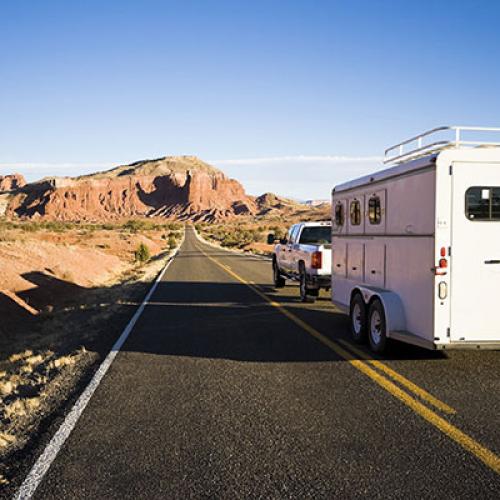There are lots of trainers – good trainers and bad trainers. This is a conversation that comes up a lot with equestrians of all disciplines and all skill levels. When is it time to move on from your current trainer?

Warmer temperatures are spreading throughout the country, which can only mean one thing. Summer is just around the corner! You may be eager to hit the road with your horse this summer. Maybe you are headed on a camping trip with your horse, or maybe a training clinic, or even a competition. Before you travel, here are a few tips you should keep in mind.
As you are organizing your trip, plan to leave early in the day to avoid the most intense heat. Stopping for breaks every 4-6 hours is important. You can offer your horse water and give them a rest from the road motion.
Enjoy the summer and have healthy and safe travels!
There are lots of trainers – good trainers and bad trainers. This is a conversation that comes up a lot with equestrians of all disciplines and all skill levels. When is it time to move on from your current trainer?
While you are working on New Year’s resolutions for yourself, consider making a few for your horse as well. Here are a few suggestions...
Maintaining a healthy weight is essential for horses as they age. Here are a few tips to help keep your horse fit and trim.
Would you know it if your horse was in pain? Even if you knew your horse was in pain, would you know what type of pain he or she was suffering from?